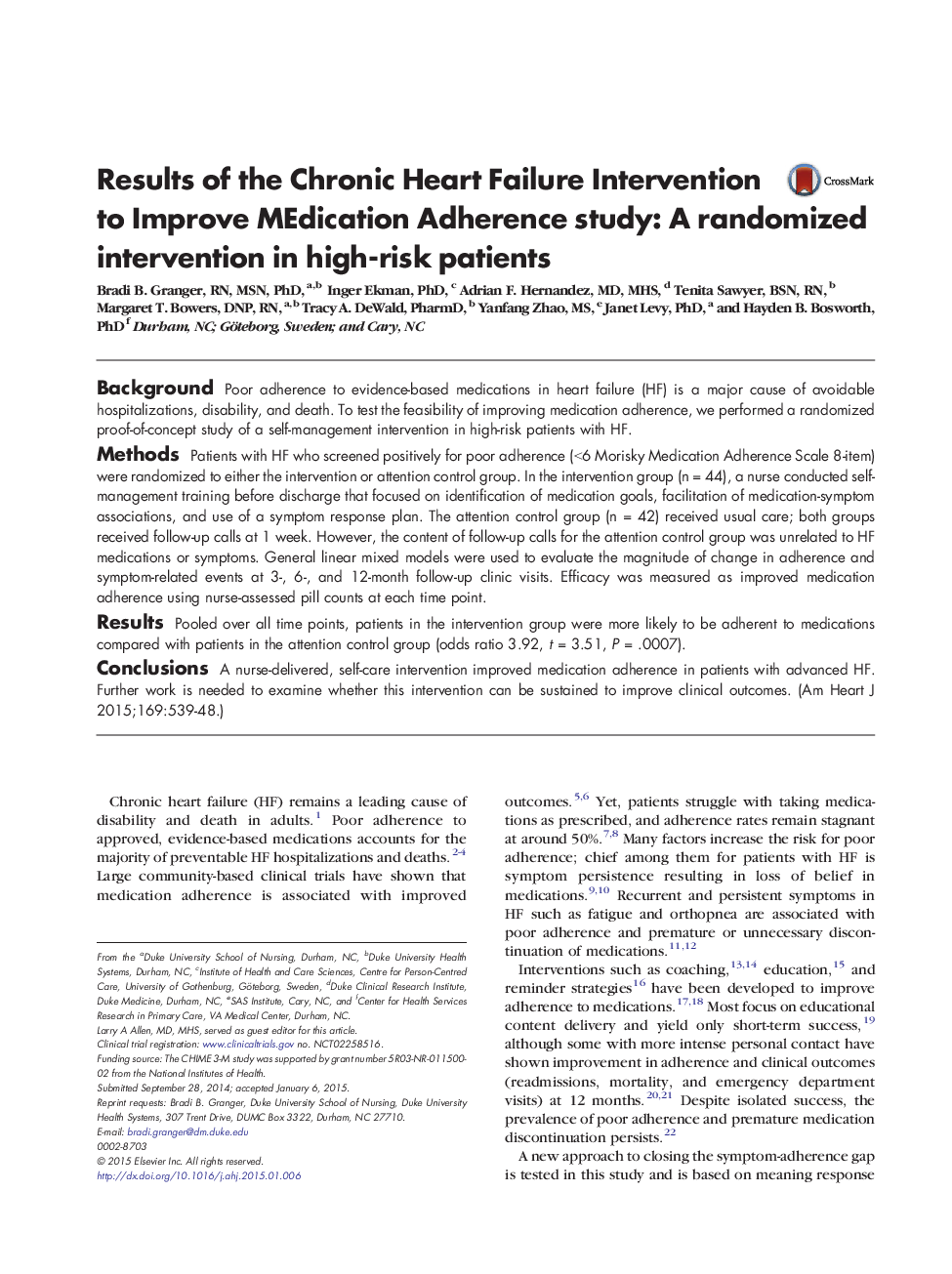| کد مقاله | کد نشریه | سال انتشار | مقاله انگلیسی | نسخه تمام متن |
|---|---|---|---|---|
| 5926906 | 1167658 | 2015 | 10 صفحه PDF | دانلود رایگان |
BackgroundPoor adherence to evidence-based medications in heart failure (HF) is a major cause of avoidable hospitalizations, disability, and death. To test the feasibility of improving medication adherence, we performed a randomized proof-of-concept study of a self-management intervention in high-risk patients with HF.MethodsPatients with HF who screened positively for poor adherence (<6 Morisky Medication Adherence Scale 8-item) were randomized to either the intervention or attention control group. In the intervention group (n = 44), a nurse conducted self-management training before discharge that focused on identification of medication goals, facilitation of medication-symptom associations, and use of a symptom response plan. The attention control group (n = 42) received usual care; both groups received follow-up calls at 1 week. However, the content of follow-up calls for the attention control group was unrelated to HF medications or symptoms. General linear mixed models were used to evaluate the magnitude of change in adherence and symptom-related events at 3-, 6-, and 12-month follow-up clinic visits. Efficacy was measured as improved medication adherence using nurse-assessed pill counts at each time point.ResultsPooled over all time points, patients in the intervention group were more likely to be adherent to medications compared with patients in the attention control group (odds ratio 3.92, t = 3.51, P = .0007).ConclusionsA nurse-delivered, self-care intervention improved medication adherence in patients with advanced HF. Further work is needed to examine whether this intervention can be sustained to improve clinical outcomes.
Journal: American Heart Journal - Volume 169, Issue 4, April 2015, Pages 539-548
